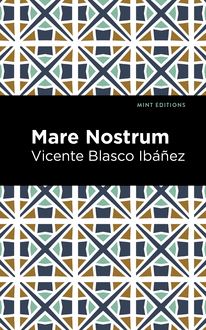-
 Univers
Univers
-
 Ebooks
Ebooks
-
 Livres audio
Livres audio
-
 Presse
Presse
-
 Podcasts
Podcasts
-
 BD
BD
-
 Documents
Documents
-
- Cours
- Révisions
- Ressources pédagogiques
- Sciences de l’éducation
- Manuels scolaires
- Langues
- Travaux de classe
- Annales de BEP
- Etudes supérieures
- Maternelle et primaire
- Fiches de lecture
- Orientation scolaire
- Méthodologie
- Corrigés de devoir
- Annales d’examens et concours
- Annales du bac
- Annales du brevet
- Rapports de stage
La lecture à portée de main
Vous pourrez modifier la taille du texte de cet ouvrage
Découvre YouScribe en t'inscrivant gratuitement
Je m'inscrisDécouvre YouScribe en t'inscrivant gratuitement
Je m'inscrisEn savoir plus
Vous pourrez modifier la taille du texte de cet ouvrage
En savoir plus

Description
“The greatest tragic writer among English novelists.”-Virginia Woolf
Far from the Madding Crowd is the first of Thomas Hardy's great novels, and the first to sound the tragic note for which his fiction is best remembered.”-Margaret Drabble
Far from the Madding Crowd, the fourth novel written by Thomas Hardy, is a pensive yet pastoral novel that initially appeared in serial form in the late 1800's. It has since become one of the most popular books of English literature, with its rich rhythms of rural life, beautiful and independent heroine, and romantic intrigue.
In Wessex, the novel's apocryphal region of rural southwest England, the independent and spirited Bathsheba Everdene has a chance encounter with a virtuous young shepherd named Gabriel Oak; He is taken by her beauty, and proposes marriage, and she refuses. Soon after, Bathsheba moves away to the town of Weatherbury, and Gabriel falls on hard times. Penniless, and roving from town to town seeking employment, he happens to come upon a fire ravaging a farm. Gabriel aids in getting the fire under control, and is stunned to discover that the farm is owned by Bathsheba. Once again, they are reunited, yet now Gabriel is employed as a farmhand. When a second suitor, a local landowner, seeks her affection the inextricable struggles of love and betrayal spins Bathsheba's life into a maze of uncontrollable frenzy and passion.
With an eye-catching new cover, and professionally typeset manuscript, this edition of Far from the Madding Crowd is both modern and readable.
Sujets
Informations
| Publié par | Mint Editions |
| Date de parution | 06 octobre 2020 |
| Nombre de lectures | 0 |
| EAN13 | 9781513268095 |
| Langue | English |
| Poids de l'ouvrage | 3 Mo |
Informations légales : prix de location à la page 0,0500€. Cette information est donnée uniquement à titre indicatif conformément à la législation en vigueur.
Extrait
Far from the Madding Crowd
Thomas Hardy
Far from the Madding Crowd was first published in 1874.
This edition published by Mint Editions 2020.
ISBN 9781513266091 | E-ISBN 9781513268095
Published by Mint Editions®
minteditionbooks.com
Publishing Director: Jennifer Newens
Project Manager: Gabrielle Maudiere
Design & Production: Rachel Lopez Metzger
Typesetting: Westchester Publishing Services
CONTENTS P REFACE I. D ESCRIPTION OF F ARMER O AK —A N I NCIDENT II. N IGHT —T HE F LOCK —A N I NTERIOR —A NOTHER I NTERIOR III. A G IRL ON H ORSEBACK —C ONVERSATION IV. G ABRIEL ’ S R ESOLVE —T HE V ISIT —T HE M ISTAKE V. D EPARTURE OF B ATHSHEBA —A P ASTORAL T RAGEDY VI. T HE F AIR —T HE J OURNEY —T HE F IRE VII. R ECOGNITION —A T IMID G IRL VIII. T HE M ALTHOUSE —T HE C HAT —N EWS IX. T HE H OMESTEAD —A V ISITOR —H ALF -C ONFIDENCES X. M ISTRESS AND M EN XI. O UTSIDE THE B ARRACKS —S NOW —A M EETING XII. F ARMERS —A R ULE —A N E XCEPTION XIII. S ORTES S ANCTORUM —T HE V ALENTINE XIV. E FFECT OF THE L ETTER —S UNRISE XV. A M ORNING M EETING —T HE L ETTER A GAIN XVI. A LL S AINTS ’ AND A LL S OULS ’ XVII. I N THE M ARKET -P LACE XVIII. B OLDWOOD IN M EDITATION —R EGRET XIX. T HE S HEEP -W ASHING —T HE O FFER XX. P ERPLEXITY —G RINDING THE S HEARS —A Q UARREL XXI. T ROUBLES IN THE F OLD —A M ESSAGE XXII. T HE G REAT B ARN AND THE S HEEP -S HEARERS XXIII. E VENTIDE —A S ECOND D ECLARATION XXIV. T HE S AME N IGHT —T HE F IR P LANTATION XXV. T HE N EW A CQUAINTANCE D ESCRIBED XXVI. S CENE ON THE V ERGE OF THE H AY -M EAD XXVII. H IVING THE B EES XXVIII. T HE H OLLOW A MID THE F ERNS XXIX. P ARTICULARS OF A T WILIGHT W ALK XXX. H OT C HEEKS AND T EARFUL E YES XXXI. B LAME —F URY XXXII. N IGHT —H ORSES T RAMPING XXXIII. I N THE S UN —A H ARBINGER XXXIV. H OME A GAIN —A T RICKSTER XXXV. A T AN U PPER W INDOW XXXVI. W EALTH IN J EOPARDY —T HE R EVEL XXXVII. T HE S TORM —T HE T WO T OGETHER XXXVIII. R AIN —O NE S OLITARY M EETS A NOTHER XXXIX. C OMING H OME —A C RY XL. O N C ASTERBRIDGE H IGHWAY XLI. S USPICION —F ANNY I S S ENT F OR XLII. J OSEPH AND H IS B URDEN —B UCK ’ S H EAD XLIII. F ANNY ’ S R EVENGE XLIV. U NDER A T REE —R EACTION XLV. T ROY ’ S R OMANTICISM XLVI. T HE G URGOYLE : I TS D OINGS XLVII. A DVENTURES BY THE S HORE XLVIII. D OUBTS A RISE —D OUBTS L INGER XLIX. O AK ’ S A DVANCEMENT —A G REAT H OPE L. T HE S HEEP F AIR —T ROY T OUCHES H IS W IFE ’ S H AND LI. B ATHSHEBA T ALKS WITH H ER O UTRIDER LII. C ONVERGING C OURSES LIII. C ONCURRITUR —H ORAE M OMENTO LIV. A FTER THE S HOCK LV. T HE M ARCH F OLLOWING —“B ATHSHEBA B OLDWOOD ” LVI. B EAUTY IN L ONELINESS —A FTER A LL LVII. A F OGGY N IGHT AND M ORNING —C ONCLUSION
P REFACE
In reprinting this story for a new edition I am reminded that it was in the chapters of Far from the Madding Crowd , as they appeared month by month in a popular magazine, that I first ventured to adopt the word “Wessex” from the pages of early English history, and give it a fictitious significance as the existing name of the district once included in that extinct kingdom. The series of novels I projected being mainly of the kind called local, they seemed to require a territorial definition of some sort to lend unity to their scene. Finding that the area of a single county did not afford a canvas large enough for this purpose, and that there were objections to an invented name, I disinterred the old one. The press and the public were kind enough to welcome the fanciful plan, and willingly joined me in the anachronism of imagining a Wessex population living under Queen Victoria;—a modern Wessex of railways, the penny post, mowing and reaping machines, union workhouses, lucifer matches, labourers who could read and write, and National school children. But I believe I am correct in stating that, until the existence of this contemporaneous Wessex was announced in the present story, in 1874, it had never been heard of, and that the expression, “a Wessex peasant,” or “a Wessex custom,” would theretofore have been taken to refer to nothing later in date than the Norman Conquest.
I did not anticipate that this application of the word to a modern use would extend outside the chapters of my own chronicles. But the name was soon taken up elsewhere as a local designation. The first to do so was the now defunct Examiner , which, in the impression bearing date July 15, 1876, entitled one of its articles “The Wessex Labourer,” the article turning out to be no dissertation on farming during the Heptarchy, but on the modern peasant of the south-west counties, and his presentation in these stories.
Since then the appellation which I had thought to reserve to the horizons and landscapes of a merely realistic dream-country, has become more and more popular as a practical definition; and the dream-country has, by degrees, solidified into a utilitarian region which people can go to, take a house in, and write to the papers from. But I ask all good and gentle readers to be so kind as to forget this, and to refuse steadfastly to believe that there are any inhabitants of a Victorian Wessex outside the pages of this and the companion volumes in which they were first discovered.
Moreover, the village called Weatherbury, wherein the scenes of the present story of the series are for the most part laid, would perhaps be hardly discernible by the explorer, without help, in any existing place nowadays; though at the time, comparatively recent, at which the tale was written, a sufficient reality to meet the descriptions, both of backgrounds and personages, might have been traced easily enough. The church remains, by great good fortune, unrestored and intact, and a few of the old houses; but the ancient malt-house, which was formerly so characteristic of the parish, has been pulled down these twenty years; also most of the thatched and dormered cottages that were once lifeholds. The game of prisoner’s base, which not so long ago seemed to enjoy a perennial vitality in front of the worn-out stocks, may, so far as I can say, be entirely unknown to the rising generation of schoolboys there. The practice of divination by Bible and key, the regarding of valentines as things of serious import, the shearing-supper, and the harvest-home, have, too, nearly disappeared in the wake of the old houses; and with them have gone, it is said, much of that love of fuddling to which the village at one time was notoriously prone. The change at the root of this has been the recent supplanting of the class of stationary cottagers, who carried on the local traditions and humours, by a population of more or less migratory labourers, which has led to a break of continuity in local history, more fatal than any other thing to the preservation of legend, folk-lore, close inter-social relations, and eccentric individualities. For these the indispensable conditions of existence are attachment to the soil of one particular spot by generation after generation.
T.H.
February 1895
I
D ESCRIPTION OF F ARMER O AK —A N I NCIDENT
When Farmer Oak smiled, the corners of his mouth spread till they were within an unimportant distance of his ears, his eyes were reduced to chinks, and diverging wrinkles appeared round them, extending upon his countenance like the rays in a rudimentary sketch of the rising sun.
His Christian name was Gabriel, and on working days he was a young man of sound judgment, easy motions, proper dress, and general good character. On Sundays he was a man of misty views, rather given to postponing, and hampered by his best clothes and umbrella: upon the whole, one who felt himself to occupy morally that vast middle space of Laodicean neutrality which lay between the Communion people of the parish and the drunken section,—that is, he went to church, but yawned privately by the time the congregation reached the Nicene creed, and thought of what there would be for dinner when he meant to be listening to the sermon. Or, to state his character as it stood in the scale of public opinion, when his friends and critics were in tantrums, he was considered rather a bad man; when they were pleased, he was rather a good man; when they were neither, he was a man whose moral colour was a kind of pepper-and-salt mixture.
Since he lived six times as many working-days as Sundays, Oak’s appearance in his old clothes was most peculiarly his own—the mental picture formed by his neighbours in imagining him being always dressed in that way. He wore a low-crowned felt hat, spread out at the base by tight jamming upon the head for security in high winds, and a coat like Dr. Johnson’s; his lower extremities being encased in ordinary leather leggings and boots emphatically large, affording to each foot a roomy apartment so constructed that any wearer might stand in a river all day long and know nothing of damp—their maker being a conscientious man who endeavoured to compensate for any weakness in his cut by unstinted dimension and solidity.
Mr. Oak carried about him, by way of watch, what may be called a small silver clock; in other words, it was a watch as to shape and intention, and a small clock as to size. This instrument being several years older than Oak’s grandfather, had the peculiarity of going either too fast or not at all. The smaller of its hands, too, occasionally slipped round on the pivot, and thus, though the minutes were told with precision, nobody could be quite certain of the hour they belonged to. The stopping peculiarity of his watch Oak remedied by thumps and shakes, and he escaped any evil consequences from the other two defects by constant comparisons with and observations of the sun and stars, and by pressing his face close to the glass of his neighbours’ windows, till he could discern the hour marked by the green-faced timekeepers within. It may be mentioned that Oak’s fob being difficult of access, by reason of its somewhat high situation in the waistband of his trousers (which also lay at a re
-
 Univers
Univers
-
 Ebooks
Ebooks
-
 Livres audio
Livres audio
-
 Presse
Presse
-
 Podcasts
Podcasts
-
 BD
BD
-
 Documents
Documents
-
Jeunesse
-
Littérature
-
Ressources professionnelles
-
Santé et bien-être
-
Savoirs
-
Education
-
Loisirs et hobbies
-
Art, musique et cinéma
-
Actualité et débat de société
-
Jeunesse
-
Littérature
-
Ressources professionnelles
-
Santé et bien-être
-
Savoirs
-
Education
-
Loisirs et hobbies
-
Art, musique et cinéma
-
Actualité et débat de société
-
Actualités
-
Lifestyle
-
Presse jeunesse
-
Presse professionnelle
-
Pratique
-
Presse sportive
-
Presse internationale
-
Culture & Médias
-
Action et Aventures
-
Science-fiction et Fantasy
-
Société
-
Jeunesse
-
Littérature
-
Ressources professionnelles
-
Santé et bien-être
-
Savoirs
-
Education
-
Loisirs et hobbies
-
Art, musique et cinéma
-
Actualité et débat de société
- Cours
- Révisions
- Ressources pédagogiques
- Sciences de l’éducation
- Manuels scolaires
- Langues
- Travaux de classe
- Annales de BEP
- Etudes supérieures
- Maternelle et primaire
- Fiches de lecture
- Orientation scolaire
- Méthodologie
- Corrigés de devoir
- Annales d’examens et concours
- Annales du bac
- Annales du brevet
- Rapports de stage



















